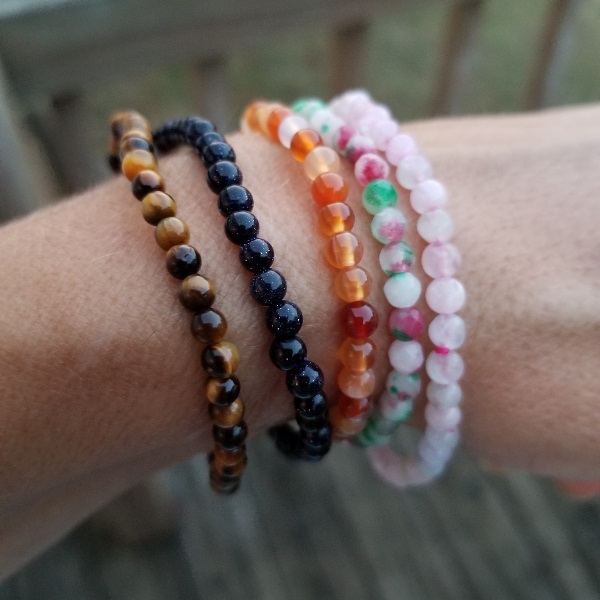
Over the Hudson River and through the woods, to Family Week we went.
I’d been to the Omega Institute before, but this trip was different.
Three years into a high-conflict divorce, my faith in humanity was shaky. My vision was myopic, laser-focused on containing my pain and being strong for my kids.
I imagined the other families would be unbroken, and I’d packed a little shame about that. I longed for belonging and self-expression, though, so I chose Nancy Slonim Aronie’s workshop: Writing from the Heart. I knew I was in the right place when she said writers were alchemists who turned sh*t into gold.
That loving environment loosened the layers of silence I’d wrapped around my wounds, and I wrote my heart out. I found some fresh, shaky bravery, and kind eyes and ears to receive it. Pure gold.
Two years later, I returned to Family Week as a prodigal divorced mom needing a vacation. Anxiety and fatigue were daily companions. I juggled two jobs, two kids, and PTSD from the divorce.
Omega has womb-like associations for me. I’d been pregnant on several prior visits. Was a little rebirth for myself too much to ask?
This time, I chose a workshop on Nonviolent Communication (NVC) with Dian Killian, really only knowing that it dealt with feelings and needs. I’m fluent with feelings, as a counselor and a sensitive person. But needs—oh, I squirm at the word.
I feel inept and angsty about failing to meet others’ needs. I hate the idea of being needy. I honestly thought that part of NVC might not apply to me. I’m not dating anyone. My primary relationships are with my kids. It’s inappropriate to have needs when you’re the parent, isn’t it? Maybe my needs won’t really come up.
Well, as Lily Tomlin once said, “the best mind-altering drug is the truth.”
Here’s what this workshop taught me about needs:
1. Big frustrations are gifts in disguise.
I am cracking open the shell of long-held assumptions about scarcity, believing I can’t meet everyone’s needs, so it’s either you or me—and it’s usually you.
I never voiced those implicit beliefs out loud. I just thought they were true and went without saying. I’m a single mom doing the best I can in a bad situation. My kids come first. I’m not doing enough for them. There’s no space for my needs. There’s no one willing or able to meet them anyway.
In NVC, this is a “jackal”—an idea that seems life-alienating, but points to a hidden one that’s life-affirming. No, it’s not possible to meet everyone’s needs all the time, but here’s the pearl: it is possible to hold everyone’s needs with care, including my own.
2. NVC tools can help with triggers.
When strong emotions and memories come whooshing in, hijacking my ability to respond constructively, there are needs “in there.” Identifying them is a giant leap out of reactivity and toward conscious choice. Marshall Rosenberg, the father of NVC, is cited as saying that communicating feelings without a need or a request is hell. So…needs and requests can map the way out of hell?
I was blessed with a trigger to practice on soon after arriving and checking into a motel a few miles from Omega. My daughter began expressing uneasiness, questioning why we didn’t stay on campus. I sensed her unexpressed FOMO, and her desire for community. I cared about that, but I couldn’t change our accommodations, and I didn’t want to explain why.
I usually avoid talking about money directly, as it’s a sore subject. I felt embarrassed, irritated, and heavy-hearted that what I had to offer was not enough for her. Instead of avoiding the subject this time, I simply said, “This is what I can afford. I know it’s not what you’re used to.”
3. Ideas of wrongdoing and rightdoing are booby traps.
“It’s not fair!” Another jackal of moral judgment began yammering away inside. I thought of the multiple vacations the kids had with their dad this summer. Comparisons can quickly lead into the quicksand of resentment. It happens sometimes when the kids innocently talk about their dad, and my own trauma arises inside, sparking a silent but passionate internal debate. There’s something wrong with me. There’s something wrong with him. Repeat.
I strain for integration between two points of view. They’re as incompatible as those holographic images on valentines, though, so I only go back and forth until I give up, upset and exhausted. Shameful and innocent. Visible and invisible. Reality and illusion. Truth and lies. Somewhere above the fray, Rumi is whispering, “Out beyond ideas of wrongdoing and rightdoing, there is a field, I’ll meet you there.”
Oh Rumi, I thought you’d never ask.
4. Feelings are fluid—they move and change when you name them.
Laminated words and phrases for feelings and needs laid in concentric circles on the workshop floor—Rumi’s field. Walking the outer circle, I acknowledged all the feelings, every shade of angry, upset, guilty, ashamed, fatigued, tense, anxious, vulnerable, lonely, anguished. Tears were blurring my vision, but I grabbed a tissue and kept going.
Disheartened, disconnected, alienated, worried. I paused at some new feeling words: aware, curious, connected. The knee-jerk no slowly morphed into a yes, like a train switching tracks. I was literally accessing a different part of my brain as I connected with those words and more: loving, hopeful, wise-hearted, empowered.
5. Acknowledging needs is an act of self-love.
That inner circle of needs seemed both foreign and vaguely familiar. I set aside my resistance, my pretense of not needing, and began checking inwardly for my connection with each word. It felt perfectly natural, but magical, acknowledging I had needs at all. I felt like I was walking from Kevin Costner’s field of dreams, giggling and disappearing into a field of corn—only weepier.
I listed words, compared, checked with my felt sense, crossed out, and circled my top five. It’s funny what did or didn’t resonate. Love didn’t hit the spot, but to know I matter connected with electricity. Connection to source surprised me. I want to believe in something greater, and I’ve struggled with that my whole life, but the need was undeniable—especially as a single mom. If I’m the only source, we’re screwed.
Identifying my need for healing was also a humbling admission that I wasn’t there yet. I felt palpable vulnerability acknowledging needs at all, especially the most important ones, the exiles, where the deeper injuries were. I would need courage to believe my needs mattered, and to act on that, instead of dropping them on a dime when others’ spoke louder.
6. New behaviors feel awkward.
Dian said in the workshop that anything worth doing is worth doing badly. That’s comforting. I’m awkward with nonviolent communication, a phrase my daughter doesn’t remember me ever using before, so I know I’m doing something different.
I try making requests when I’m getting overwhelmed. “Would you be willing to…?” When our needs tug us in different directions, I at least try talking about how to hold them all with care.
Because I identified a need for healing, I gave myself permission to sign up for a deep tissue massage I didn’t think I could afford. It was painful but cathartic, suggesting that maybe I couldn’t afford not to address my need for healing.
I also carefully chose five bracelets in the Omega bookstore as amulets for my needs. When my kids grew impatient waiting for me to make up my mind, I took a deep breath and asked for patience instead of abandoning the task.
I wear those bracelets every day to remind myself to hold my needs with care. Someone’s got to do it.
I think this is the beginning of a beautiful friendship.
~










Read 8 comments and reply